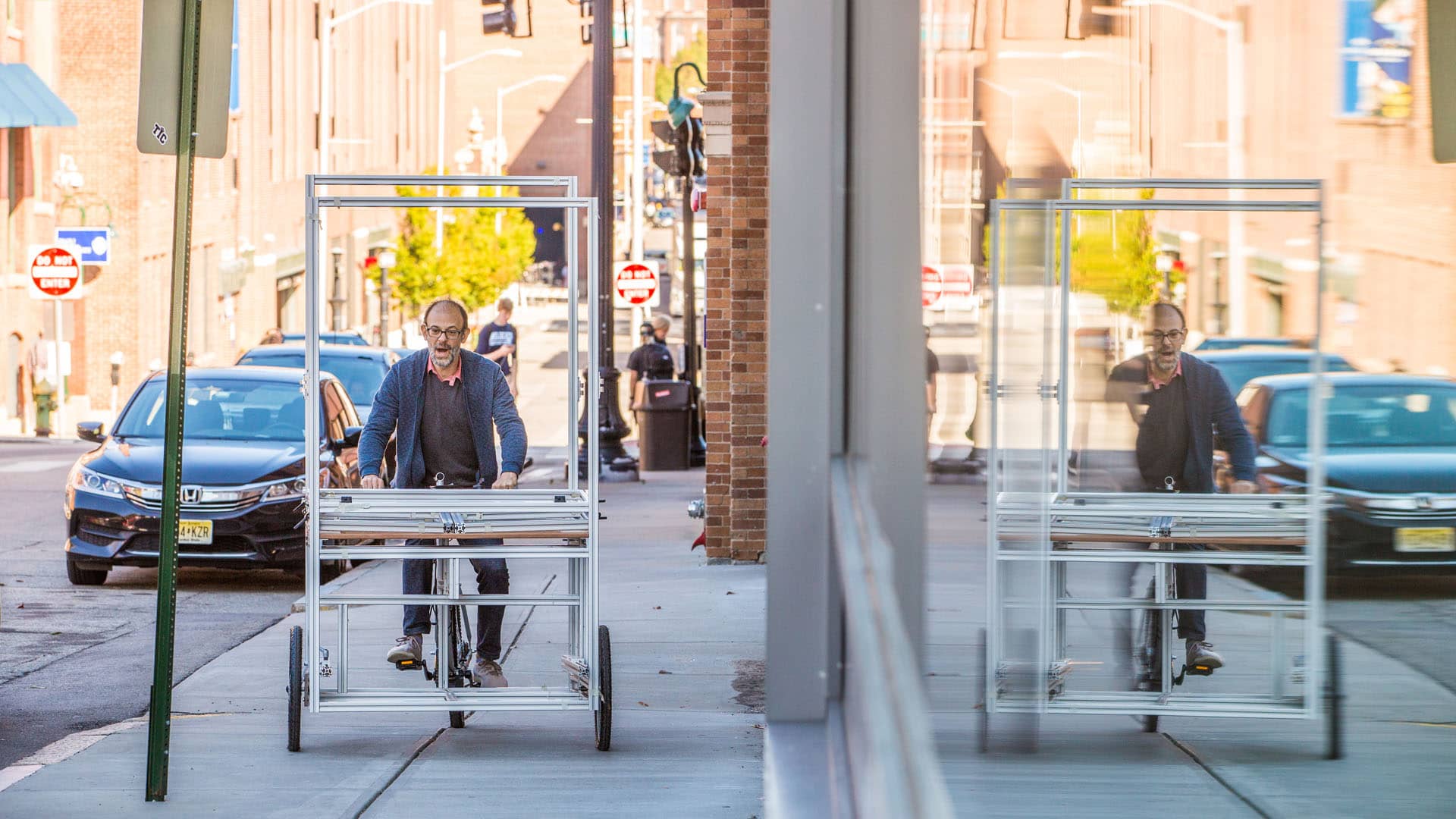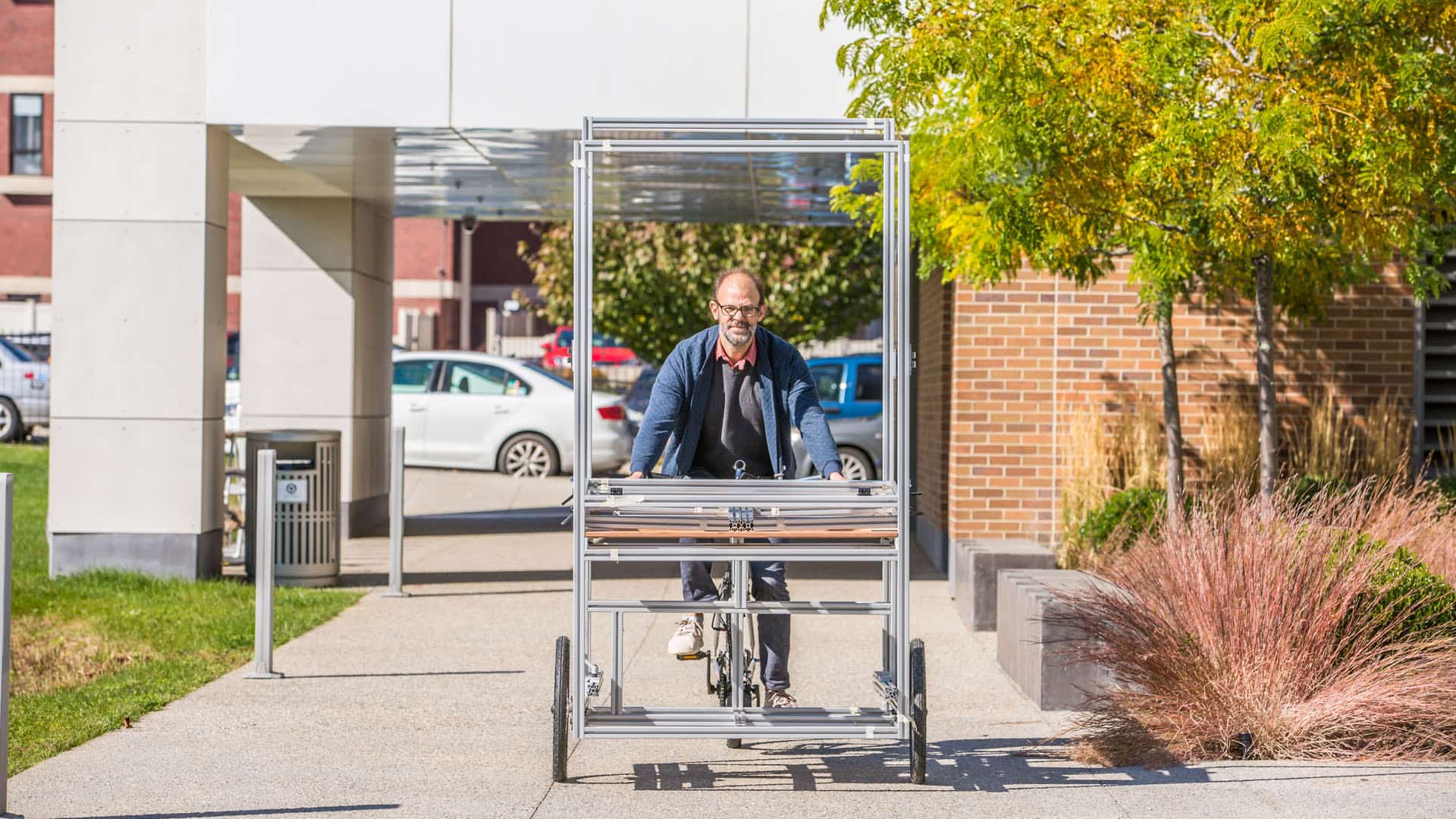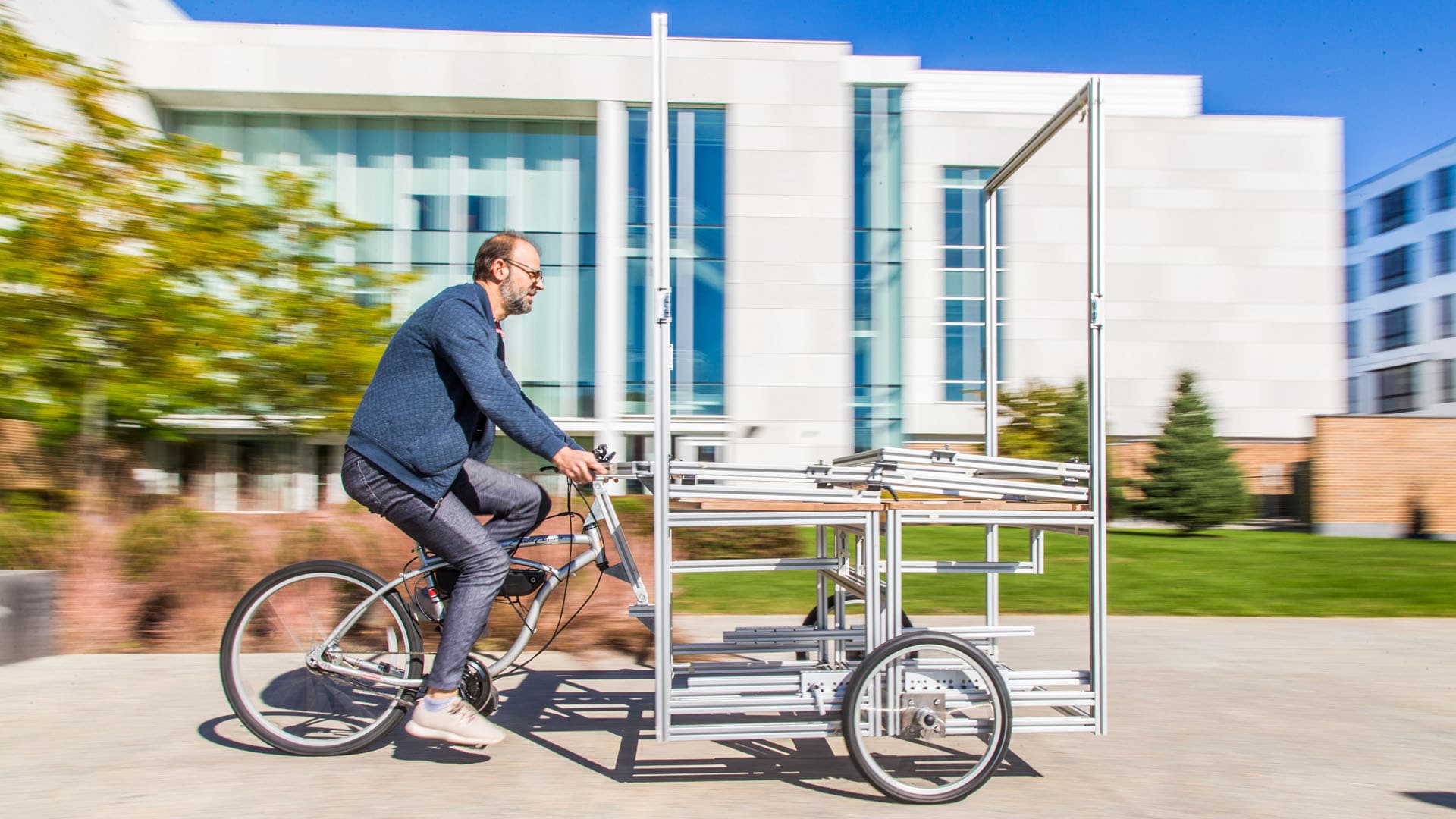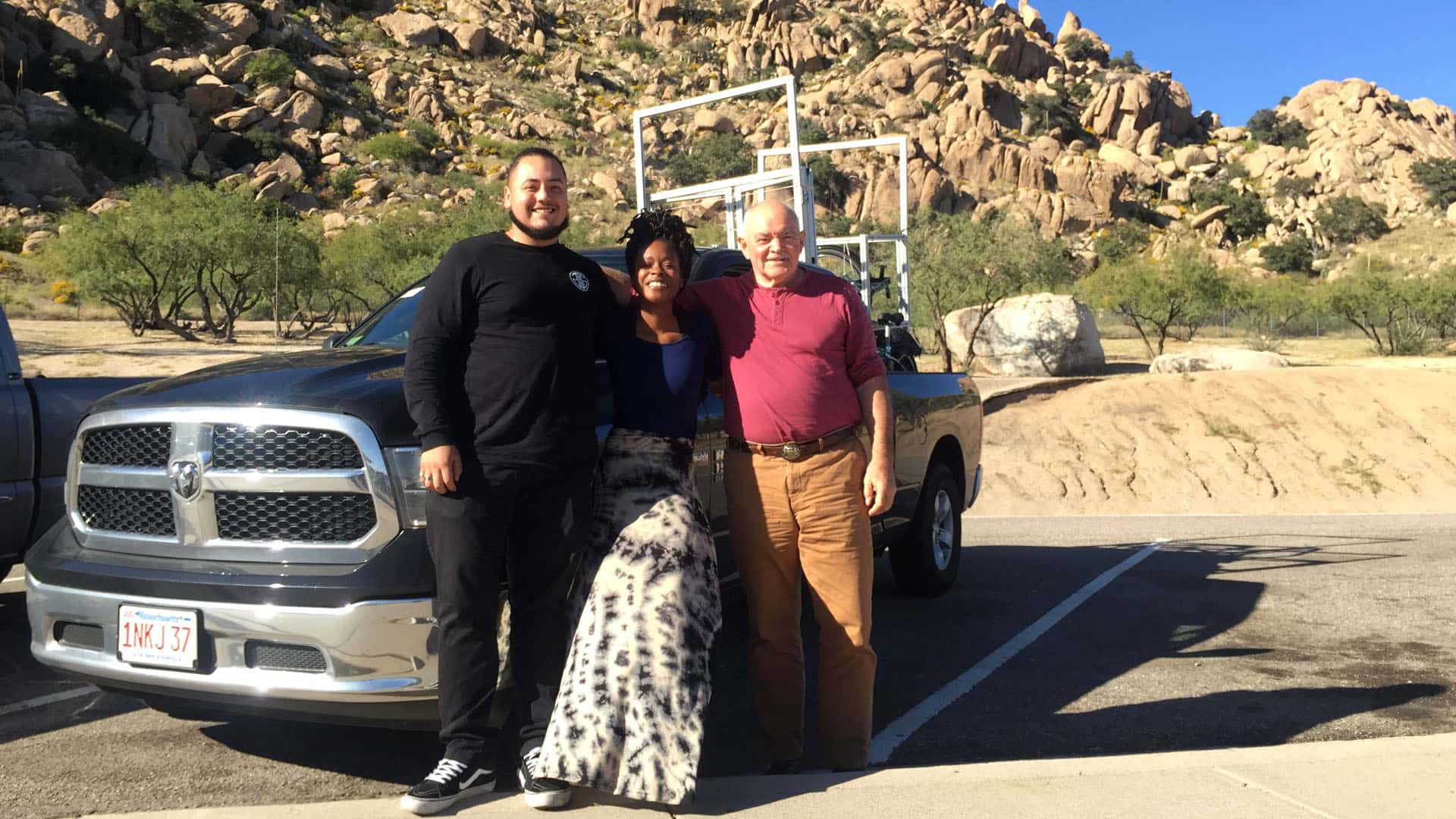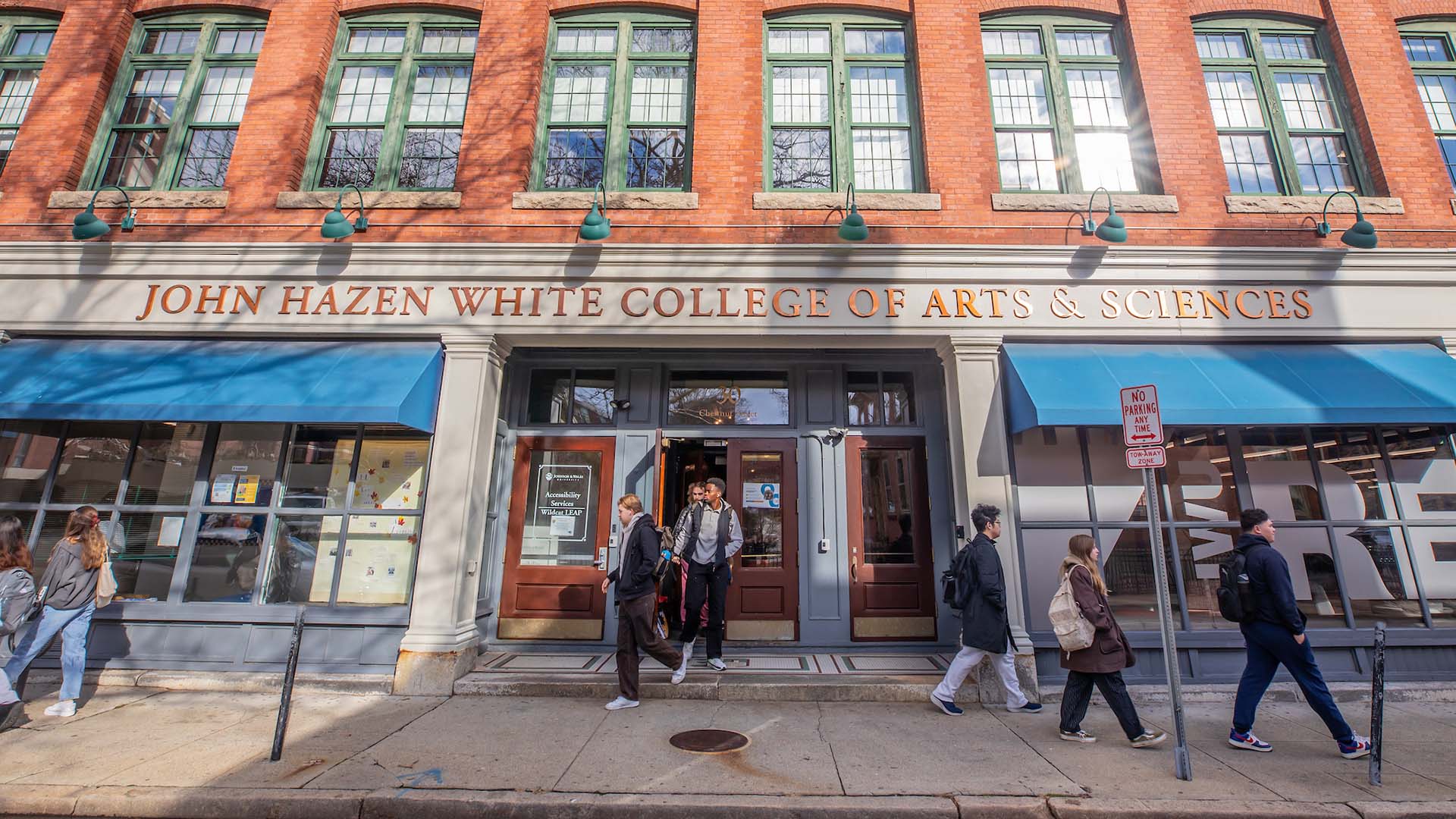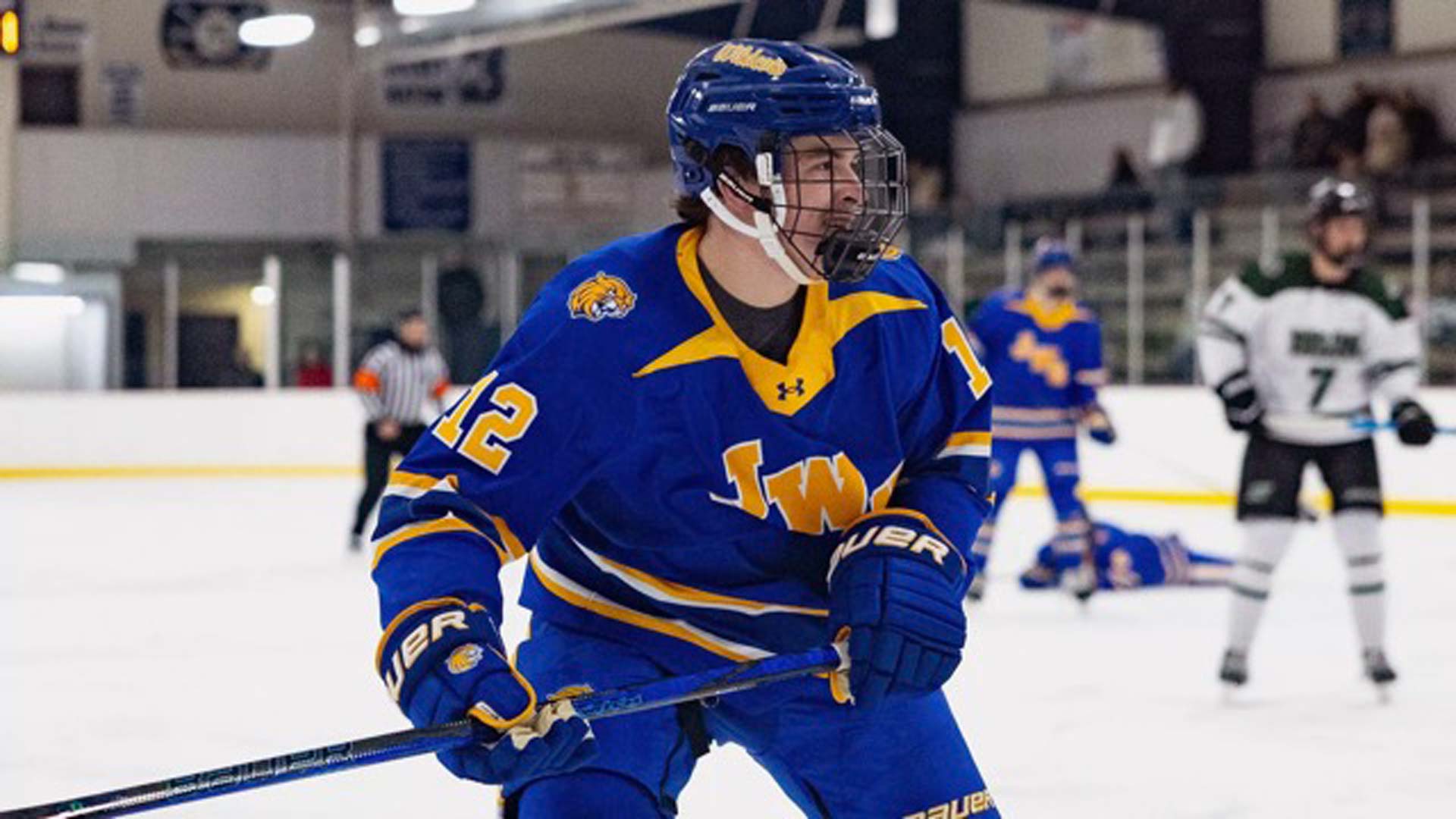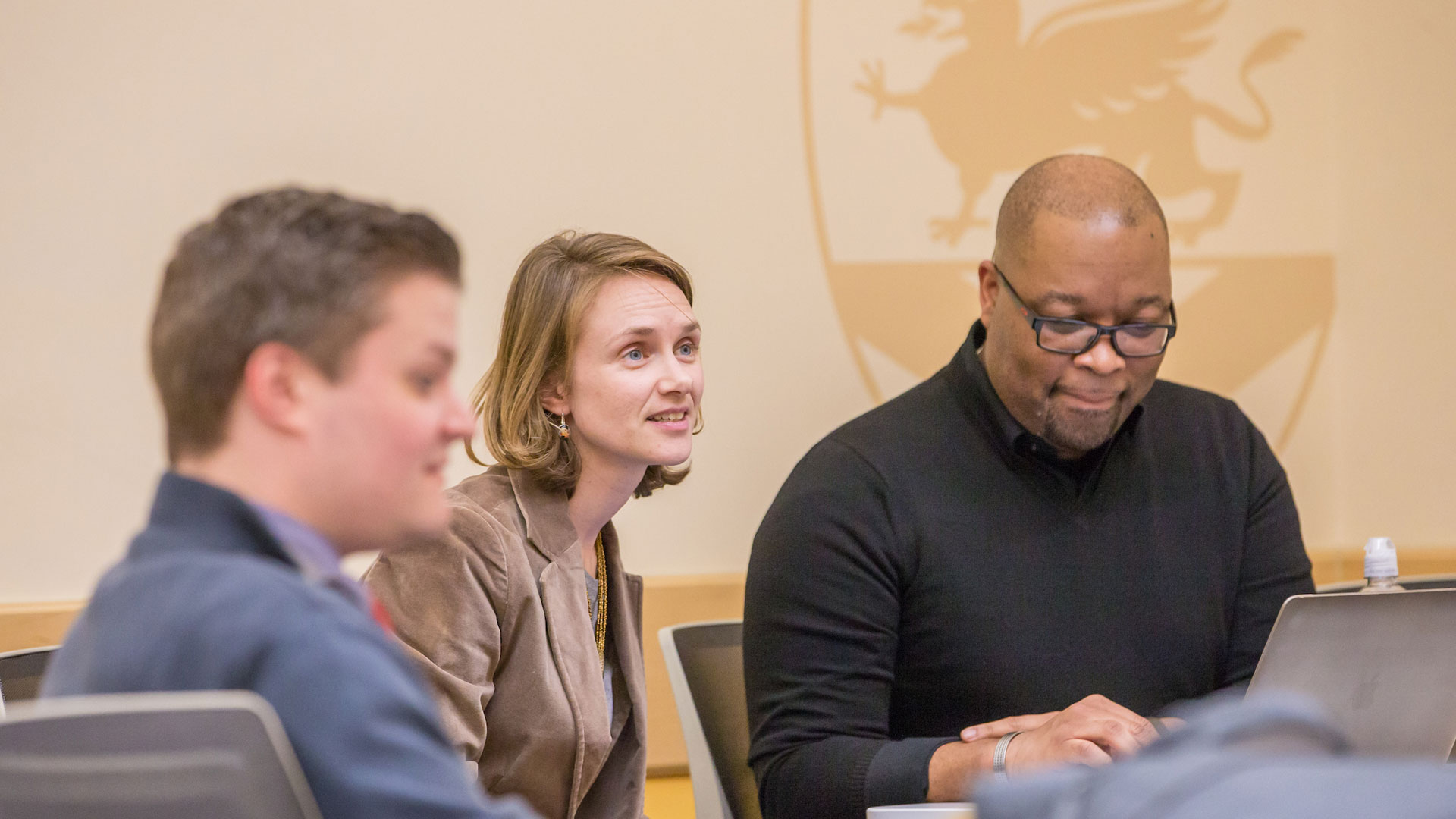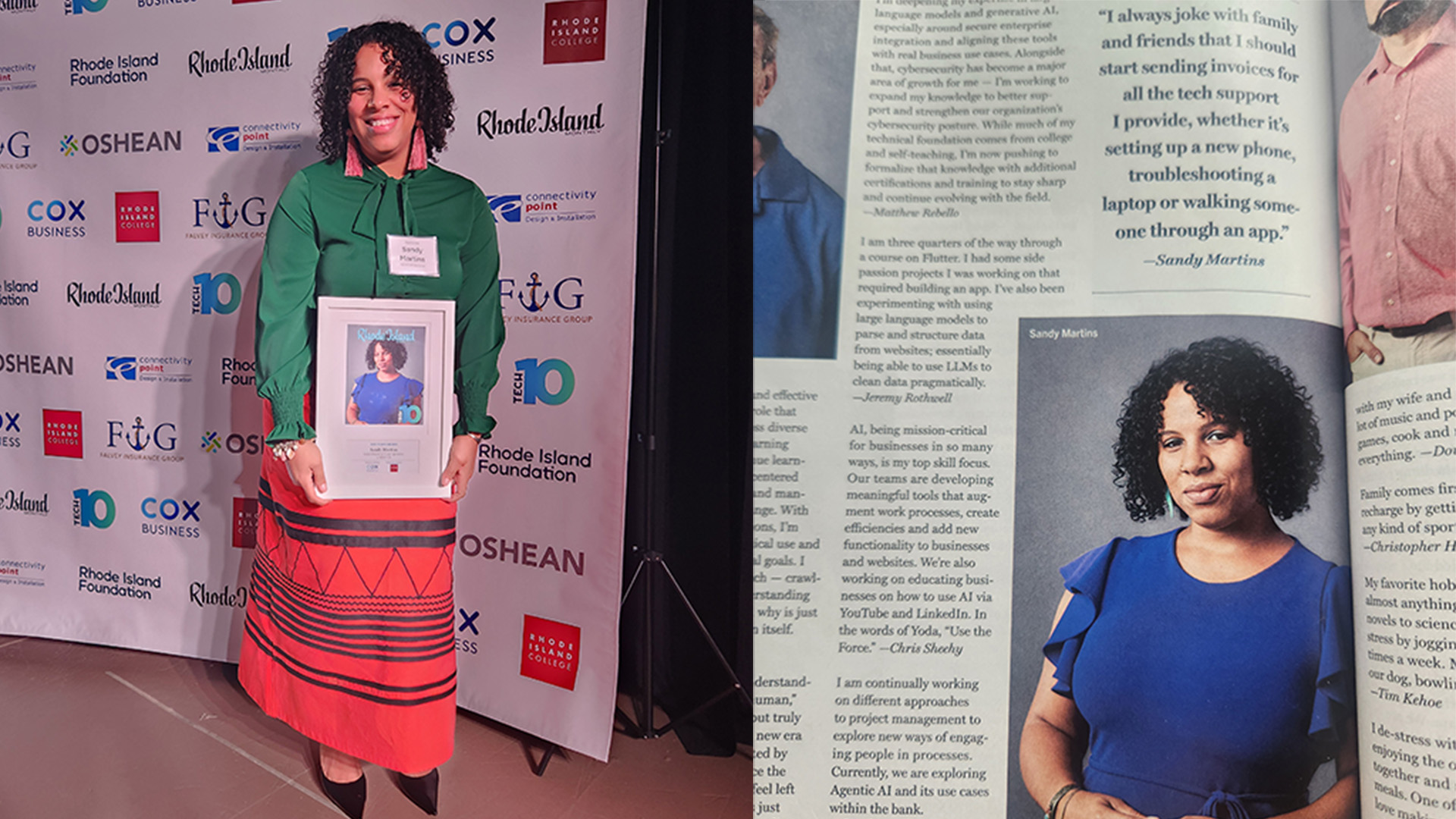A Bike, Chickpeas and a Designer Met at JWU Then Went to LA
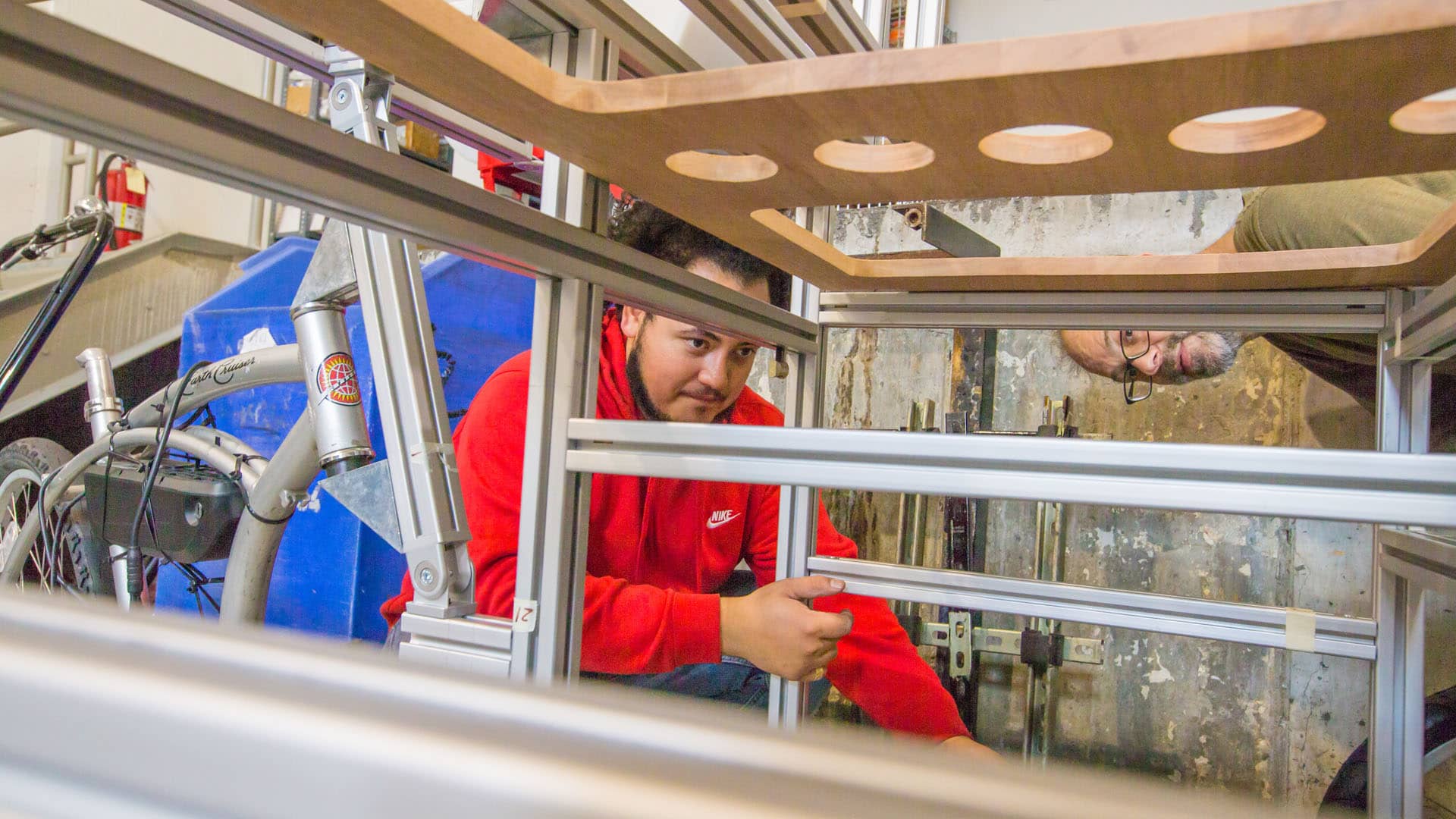
Sebastian Silva '20 recently found himself driving a truck across the U.S. on his way back home to California, but this wasn’t a typical trip to visit Mom and Dad. This time he was on a special assignment to deliver the prototype of a bike food-cart conceptualized, designed and built by JWU students during their Departmental Experiential Education (DEE) internship class.
For the past few months, including part of the summer, Silva along with Associate Professor Jonathan Harris and other classmates, were focused on meeting the expectations of clients Chefs Badr Fayez '05, '08 MBA and Adlah Al Sharan. The chefs, from Saudi Arabia and Kuwait, are getting ready to launch their international start-up company, Bowlila Balila, featuring balila (cooked whole chickpeas) — classic Middle Eastern street food sold to go from this custom-built food cart.
We all went into [this project] just shooting for the stars.
“We all kind of went into [this project] just shooting for the stars,” says Silva. “We decided to go into it with the best attitude we could and just carry ourselves professionally moving forward. Everyone [in the team] put something of themselves into the project, and it all came together.”
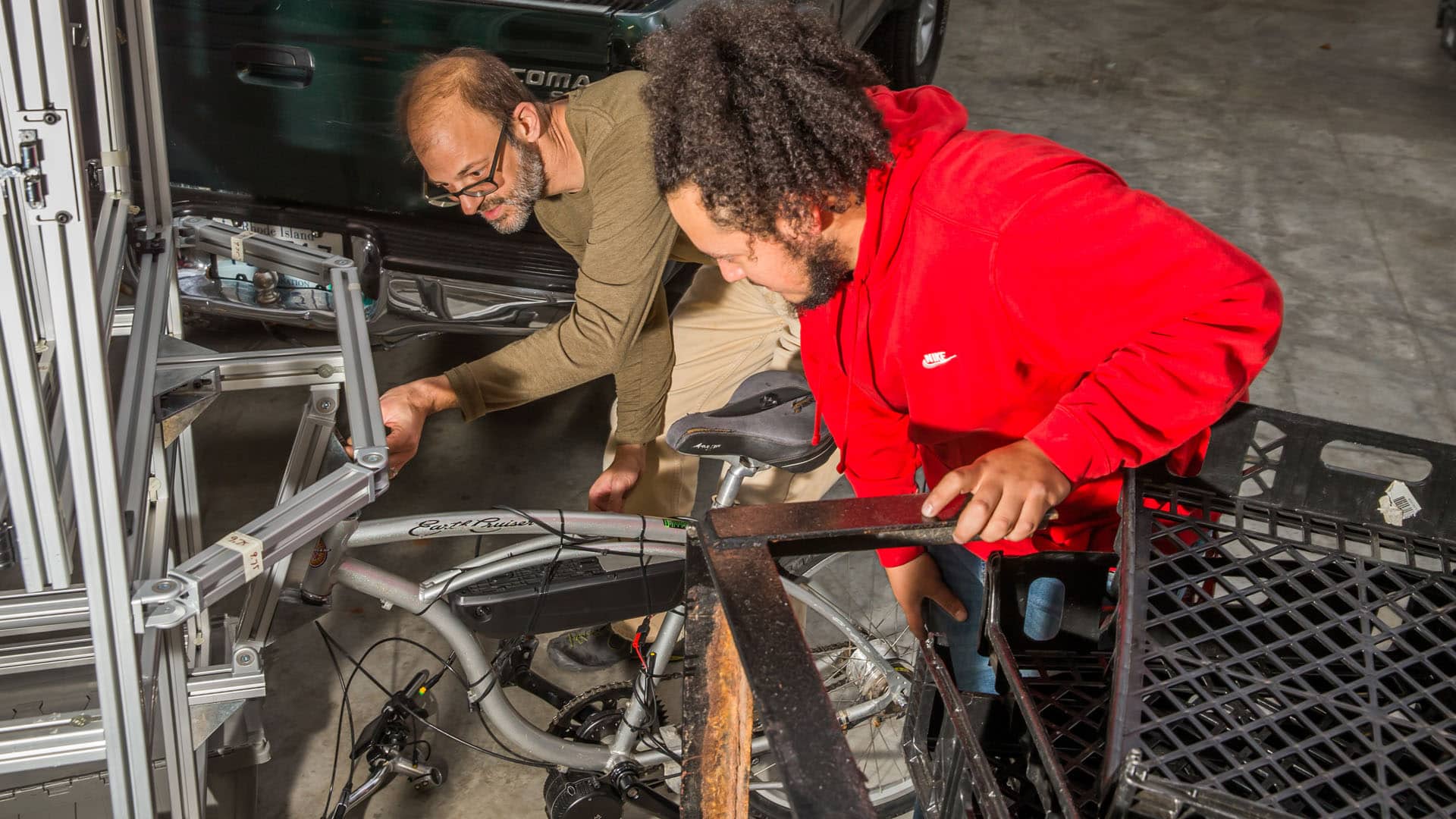
Building a First of a Kind JWU Experience
With that positive attitude, the team set out to create a solution for their clients that would be functional and light enough for someone to steer and drive it through the streets of Los Angeles while fully loaded. Though it was a long road, with many bumps along the way, the team was ready for the challenge.
“Having a client, with real-world requirements and certain constraints including costs and constructibility, changes the whole demeanor of the class,” says Harris. “When we have a new opportunity like this, students really begin to think about what unique skills they can bring to the table.” He adds that the process of choosing which students would take part in the internship was very selective and, in the end, he was able to pick 12 students representing Product Design, Graphic Design and Robotics Engineering.
According to Harris, the project took off after he received a call from Michelle Tulloch (Robinson) '11, '13 MBA and Karl Guggenmos '93, '02 MBA, owner of Culinary Solutions International, the company managing the project for Bowlila Balila in Rhode Island. “When they brought it [the project] to me, I realized that there was no way I could do what they want me to do without funding. I couldn’t build a prototype without a bicycle and other materials,” he says.
This is the first time we’ve received money for our department’s efforts.
For the first time in the department’s history, Harris says, he was able to secure a budget from the client as well as a $1,000 in-kind donation for future projects. “This is the first time we’ve received money for our department’s efforts, and it’s a donation to be used for this kind of work in Integrated Product Design. We also asked for a fabrication budget, which was separate from this, and we also got it.”
Designing a Custom Bike Food Cart
Budget in hand, the group dove into the project focusing on the end goal of building a cart that would incorporate a food prep and storage counter, ordering stations and a system to make travel easy. They began by researching, among other things, similar products already in the market, exploring layout options for food storage and serving methods, ideal temperatures to keep food safe, functionality, accessibility and weight limitations, and construction materials.
The process involved a lot of trial and error, with the engineering design team switching gears early on to modify the design for added stability and functionality. At the same time, graphic design students focused on building the company brand by designing logos with the chickpea, or “chickpeeps,”as an animated character to represent the concept’s uniqueness. This past June, the students met Chefs Al Sharan and Fayez in person to present their final designs.
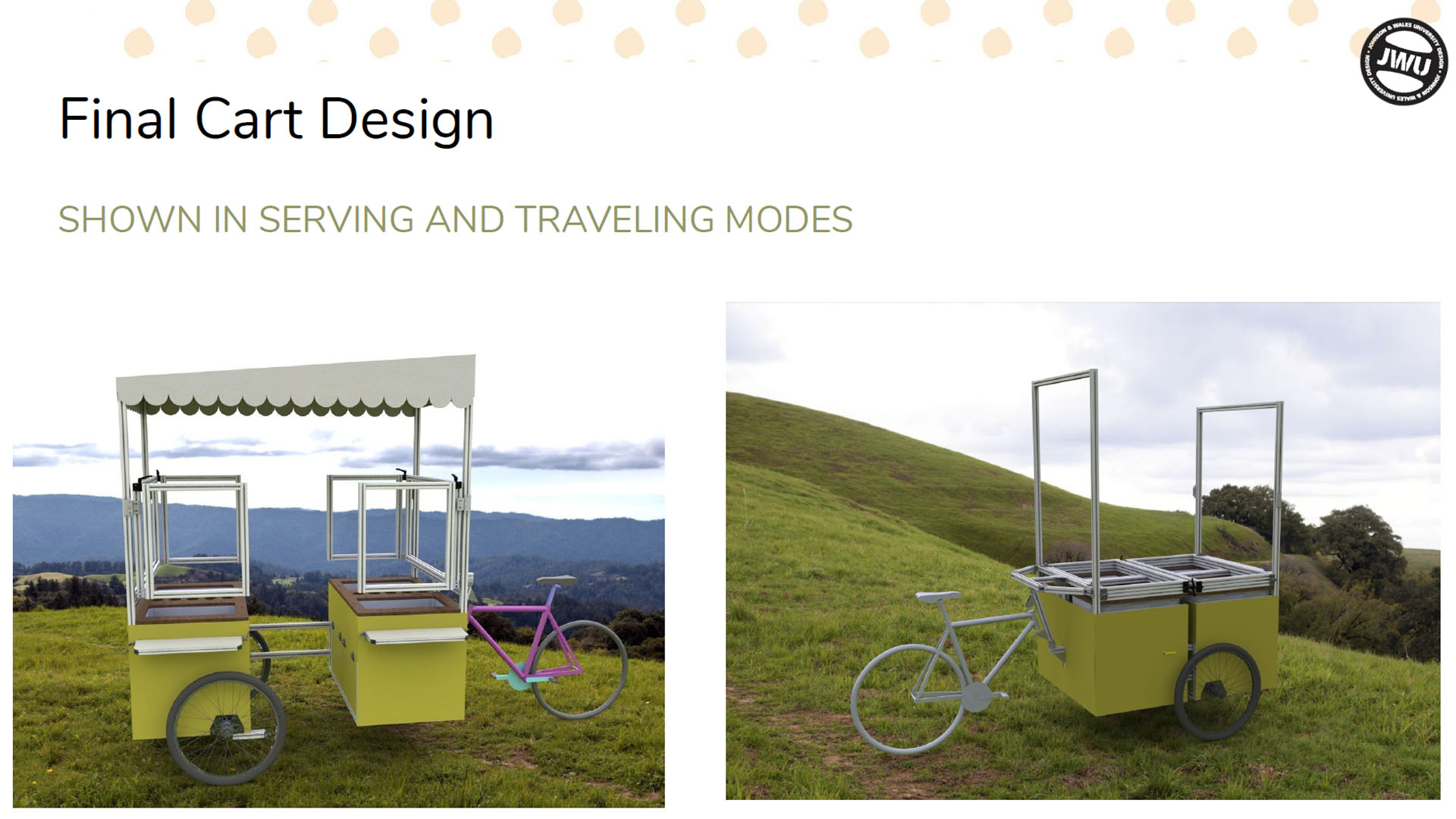
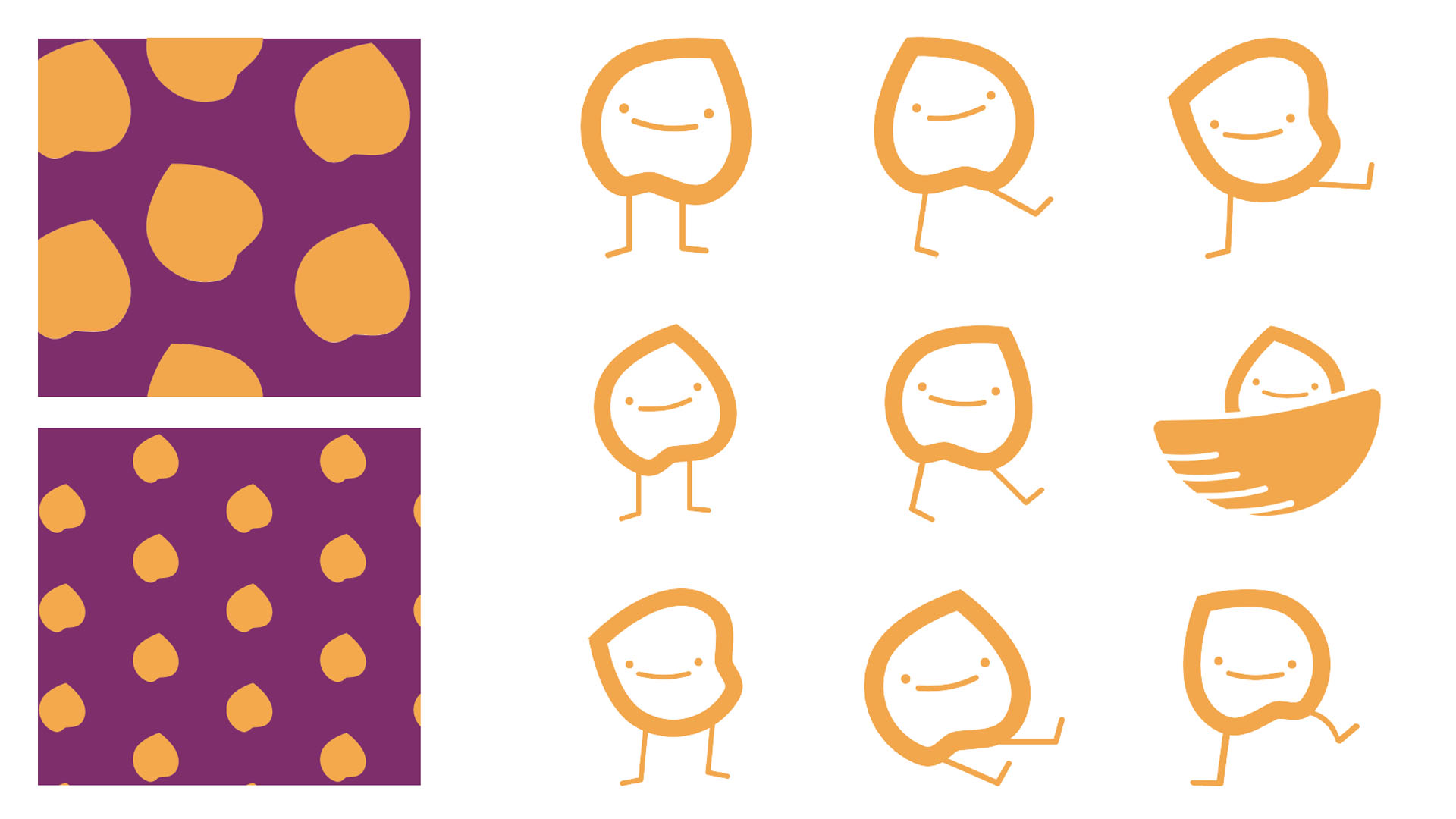
During the presentation, Assistant Professor Jeff Drury introduced the graphic design elements. “They landed on purple as a main color, and for a typeface they went with a soft, rounded, friendly type that’s easy to read,” says Drury. “They’re very excited about the chickpeep characters, and came up with a few variations to show movement and playfulness.” Looking to the future, they designed uniforms, packaging, graphic panels for the cart and merchandising to include hats, shirts and sweatshirts.
I love these; it’s exactly what I wanted.
For Chef Al Sharan it was love at first sight. “I love these; it’s exactly what I wanted. I’m especially happy with the way you [all] interpreted the logo and the colors. It has exceeded my expectations. I feel really good about this — so let’s take over the world!”
‘I Had Faith in You Guys All Along’
Chef Fayez agrees. “This process has gone very smoothly, much smoother than I expected,” says Fayez. “I’m happy that my college [JWU] ended up doing this work because when we first started thinking about this project we thought about going to MIT, but things happen for a reason.”
I’m happy that my college [JWU] ended up doing this work.
It was Guggenmos, previously dean of culinary education at JWU, who persuaded the chefs to bring the project to JWU first. “The original idea was to do this in the form of a competition [at MIT],” he says. “But I think if we had, we wouldn’t be where we are today. I’ve always had a vision of having real cooperation between the culinary side and technology [at JWU]. So, when they came to me with the idea, I just said, ‘you know what, I’m just going to talk to Frank [Tweedie] and see if now that they have the new program [integrated product design] this is something they want to do. Originally it was going to be a competition, but then Frank said he would like to do it as part of a class, and I thought that was a really great idea. I had all the faith in you guys all along.”
‘Would I Have Done Anything Differently?’
After the DEE came to an end in June, Silva continued to work on the project with Harris spending part of the summer building the prototype inside a garage adjacent to the College of Engineering & Design building. It was during that time they discovered a major flaw with the bike’s steering mechanism.
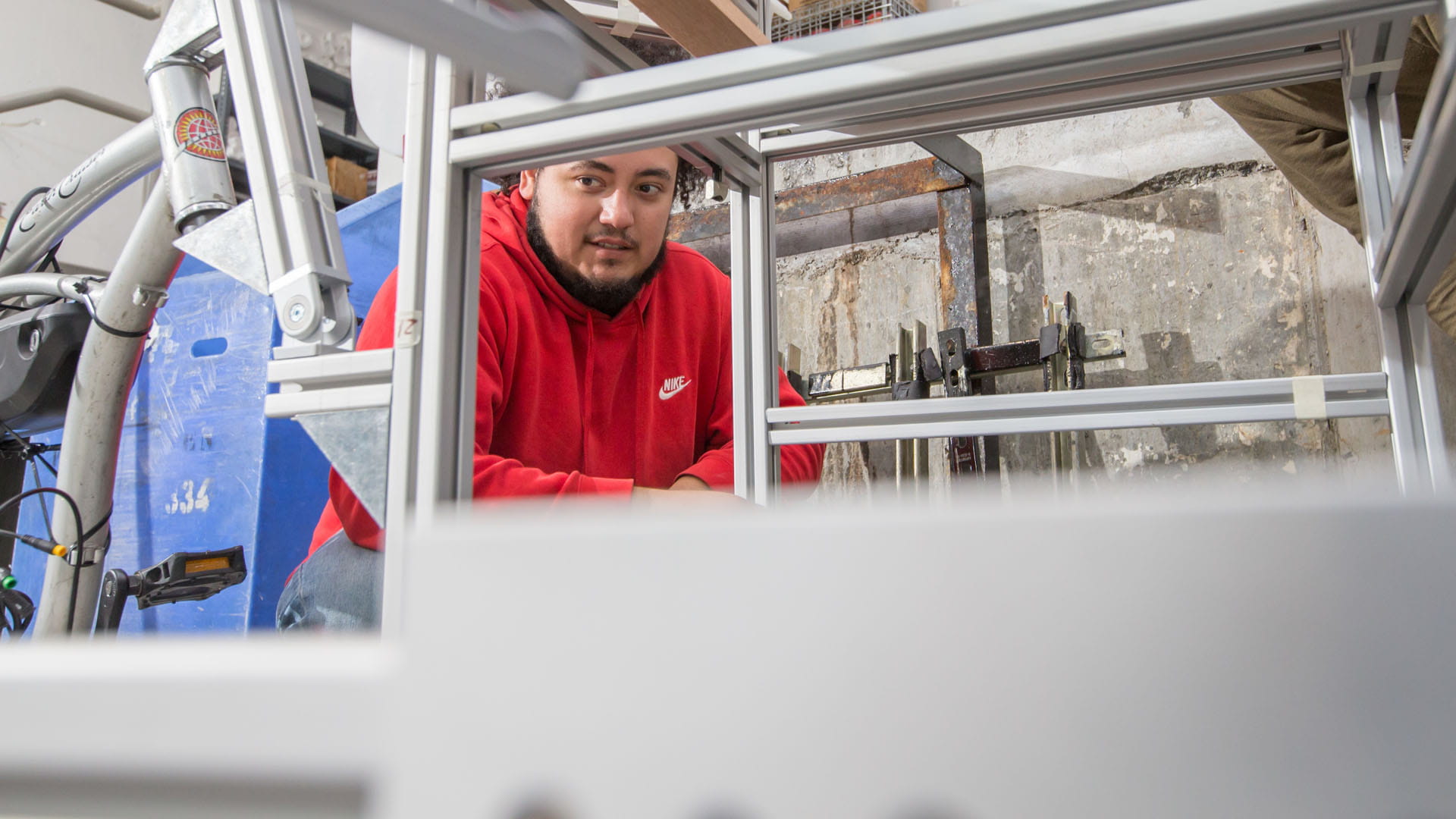
“This project has taught be to be patient,” says Silva. “I liked the fact that when we started we didn’t really have a product and it took so many of us working together to make it work. We learned to be able to take other people’s strengths and weaknesses into consideration and we worked off that. I like where the project is headed. Would I have done anything differently? I don’t believe so. Honestly, we wouldn’t have been able to see that steering flaw up until we fully mounted the bike onto the cart. But I’m just going to keep trying to work on that connection and I’m sure it’s going to work.”
At the end of October, Silva took on the role of a consultant for Bowlila Balila, leaving for LA with Guggenmos and Tulloch to set up shop in his parents’ house. There he will continue to work on the bike cart, finishing up the revisions and eventually handing it off to the client.
“I expect to finish this cart soon, and then I can get started on phase two building the other carts for the franchise. Then we can see how far the Bowlila Balila name can go,” says Silva, adding that he hopes to be back at JWU in the spring to complete his senior year.
